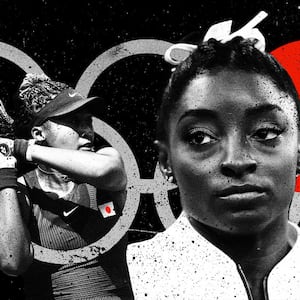Lizzo has been put through the racist-and-misogynistic ringer over the past week after her new song and video “Rumors” debuted with Cardi B, and fans and celebrities alike are not here for it. The online backlash of “Rumors” became so intense that Lizzo posted an Instagram story in tears addressing the extra criticism that larger Black women deal with.
In turn, Lizzo’s supporters have called out the racist and sexist connotations of the criticism, and highlighted the empowerment the video showcases.
“One day we will make the connection between misgynoir, transmisogynoir, transphobia and anti-Black fatphobia. We were never intended to fit into these white supremacist gender norms. We should stop trying to force each other and ourselves into them. We should let them go,” Refinery29 deputy director Brooke Obie wrote on Twitter.
In her article on the subject, Obie said the “Rumors” video “was a joyful, triumphant celebration of the Black women’s bodies that, in a fatphobic, anti-Black society, are often demanded to be shrouded and hidden away. ...But Lizzo and Cardi B refuse to be hidden.”
She drew the connection that “fat women aren’t supposed to be happy, love themselves, celebrate their bodies and take up space” and therefore “Lizzo’s joy, her steadfast belief in her right to exist fully and occupy space triggers people who bought into the white supremacist lie that these things — Black bodies and radical beliefs — must shrink.”
Mikki Kendall, the writer of Hood Feminism, a book on the intersectionality of race and feminism, posted online: “I have added ‘People who hate Lizzo’ to my list of people not to be trusted. I will treat like people who wear crooked wigs. Don't trust them.”
Music and pop culture writer Brittny Pierre came to the singer’s defense, posting on Twitter: “All Lizzo gotta do is remind herself Prince co-signed on her music. The other girls wish they had that and never will.”
Another user wrote: “My only problem with Rumors by Lizzo and Cardi B is that the song of the summer had to come out in fucking August. I should have been bumping my ass to this months ago.”
Cardi B chimed in, writing: “When you stand up for yourself, they claim you’re problematic and sensitive. When you don’t, they tear you apart until you crying like this. Whether you skinny, big, plastic, they going to always try to put their insecurities on you. Remember these are nerds looking at the popular table.”
Actress and singer Chloe Bailey called Lizzo an inspiration and said that “people are gonna talk, but you have power in your voice.”
Even the legend herself, Missy Elliott, had to remind Lizzo: “Once every few decades, someone breaks the mould. And you are one of those people. Continue to shine and be blessed through your next journey."
The drama seemed to unfold when, in the song and video, Lizzo addressed the public hate she has received during her career. From her appearance, to who she’s dating, to how people think she’s supposed to act on social media and as a bigger woman, she hit it all. However, once she doubled down on her self-assurance in “Rumors,” it seemed to irk some online trolls.
One critic even characterized the singer as a mammy, a historically racist trope defined as a larger Black woman who handled household cleaning, cooking, and took care of children. This archetype was not considered to be sexy, like the Jezebel stereotype. Instead, she was supposed to be a more matronly figure, robbed of any sexual attractiveness.
In her article, Obie questions the standards of femininity and which women have the privilege to those rights.
“Who gets to be a woman with access to those benefits — delicate treatment, protection, reverence?” she asks. “The answer has never included Black women of any kind. Being a Black woman in an anti-Black, misogynoiristic world means knowing that no matter how hard you try to fit into the rules of ‘womanhood,’ you will never quite be enough to reap those promised benefits and protections.”
During her Instagram confessional, Lizzo explained that the public’s preconceived notions and expectations of her are “fatphobic...racist and...hurtful.”
“What I won’t accept is y’all doing this to Black women over and over and over again, especially us big Black girls,” she said. “When we don’t fit into the box that you want to put us in, you just unleash hatred onto us. It’s not cool.”
Lizzo has changed the game and tossed the mammy stereotype out the window. She redefines the identity of the Black woman.
In “Rumors,” the Grammy winner creatively describes how she’s criticized for her appearance from her size to how she dresses, how she expresses her sexuality—basically everything that shouldn’t matter but does to the public eye.
The video, which is laden with sexual innuendos, features her alongside curvy dancers and a very pregnant Cardi B in a Hercules-themed environment. They’re in gold to showcase that, regardless of what people want to say, they’re going to retain their sense of regalia and choose how to define it.







